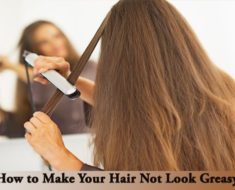The hair has been an indicator of age, health, status and beauty through most of human history. Hair loss is often a normal phenomenon or the inevitable result of day-to-day activities but is sometimes a sign of stress or disease or an indication of a suboptimal diet or unhealthy lifestyle. To some extent, the loss of hair is genetically determined, particularly pattern baldness in men, which often runs in families. For most of childhood, adolescence and young adulthood, new hair growth is sufficient to replace that which is lost. Now I discuss How to Grow Natural Hair Fast And Healthy with 15 home remedies.
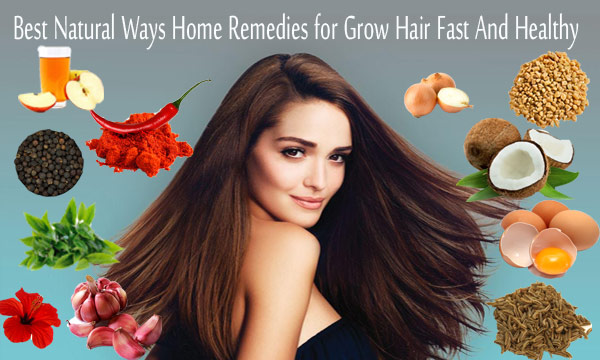
Hair grows from follicles, organs within the skin of the scalp that periodically divide and grow upward to produce hair shafts. They do this in a repetitive cycle of a growth spurt (anagen), slowdown in growth (catagen) and rest (telogen). The follicles divide during anagen, and produce strands of hair that gradually lengthen in subsequent cycles. The catagen phase is transitional: growth stops but the shaft of hair is pushed closer to the surface while the follicle shrinks. The resting or telogen phase lasts for 2 to 4 months at a time, and when this phase is over the hair is shed, to be replaced by others that have emerged and elongated during their periods of anagen and catagen.
Home Remedies for Fast Hair Growth:
Table of Contents
Hair growth is brisk and the resting phase relatively short earlier in life, but over the years the growth periods shorten and hair growth slows due to stress, lifestyle, diet and hormonal imbalance. It is sometimes necessary to seek medical attention for noticeable hair problems, and specialists in dermatology, endocrine disorders or anti-aging medicine can sometimes help. Hair care professionals can also help with excessive hair loss or insufficient hair growth. There are many remedies that you can apply yourself at home, however, and some of them are likely already in your kitchen, bathroom or garden.
#01. Apple cider vinegar:
Apple cider vinegar helps to regulate the acid-base balance of the scalp, measured by its pH, and is a mild astringent that cleanses the scalp and opens pores. It can be used in diluted form as a rinse after washing your hair. Five tablespoons or 75 ml can be mixed with a liter (4 cups) of water, preferably distilled, and then stored in a plastic bottle. You can also make a batch at a time by putting 15 ml (a tablespoonful) in a cup of warm water.
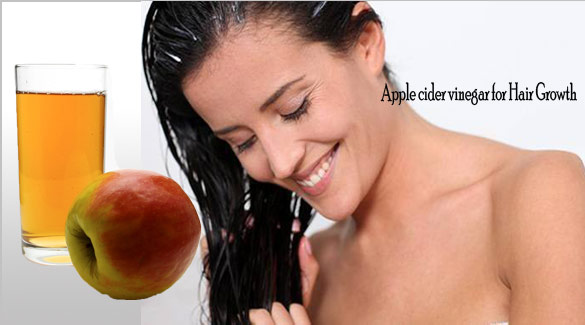
#02. Cayenne pepper:
Cayenne pepper gets its heat from capsaicin, which stimulates nerves in the scalp and leads to an increase in scalp blood flow. This in turn increases absorption of nutrients by the hair follicles and stimulates them to divide faster or to resume growth. A teaspoon of powdered red pepper can be mixed with 2 teaspoons of olive oil and rubbed on the scalp in thinned areas, then washed off with cool water.
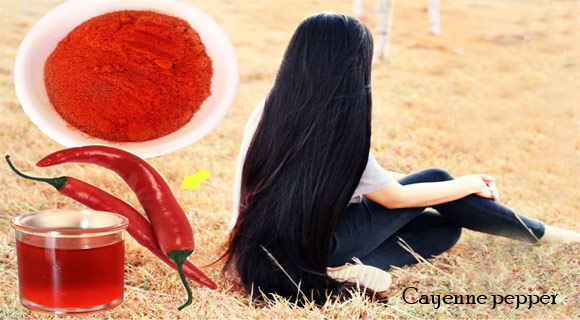
#03. Coconut oil:
Coconut oil has been used for centuries in Eastern medicine, particularly in India, to improve hair health and stimulate growth. It is highly nutritious, and is an especially good source of essential fatty acids, potassium and iron, which reduce breakage and loosening of the hair shafts. The milk of a coconut can be extracted, or commercial milk from the store can be applied to the hair and then covered with a shower cap overnight and rinsed off the next day.
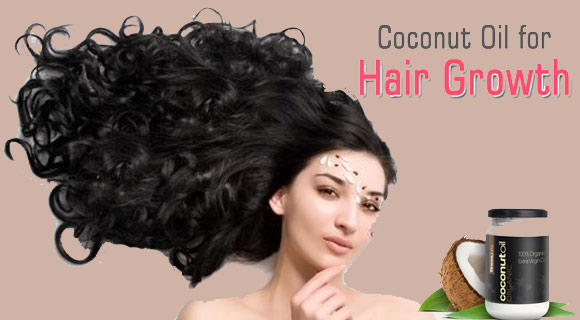
#04. Cumin seeds:
Cumin seeds are another esteemed food with medicinal benefits in eastern cultures. They have most nutrients necessary to support hair growth and fortify existing hair. Cumin seeds can be soaked overnight in olive or castor oil and the resultant oily mixture can be applied for 15 minutes followed by a mild shampoo, preferably one with only natural ingredients and no harsh detergents.
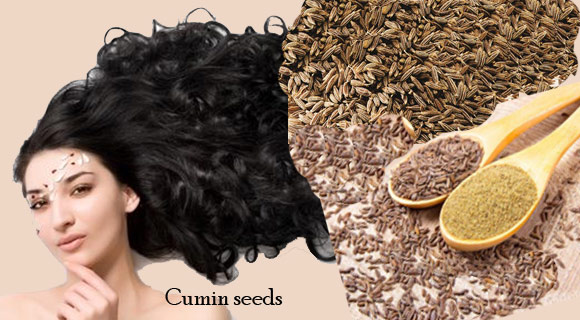
#05. Eggs:
Eggs have many medicinal uses in addition to being eaten, and egg masks are widely used for skin and hair care in much of the world. Eggs are high in protein, which is important for hair, but also contain iodine, iron, phosphorus, selenium, sulfur, and zinc that contribute to hair and skin health. The white of one egg can be mixed with a teaspoonful each of honey and olive oil. This can be made into a paste, applied to the hair for 20 minutes and then washed off with mild shampoo. A similar preparation will contribute to fresh and youthful skin.

#06. Fenugreek:
Fenugreek both accelerates the division of the hair follicles to enhance hair growth and protects the color and vibrancy of hair. It can be made into a paste with olive or coconut oil, and a teaspoonful of this can be mixed with 2 teaspoons of coconut milk. The paste can be applied to the hair and scalp for half an hour and then washed off, again with a mild and preferably all-natural shampoo.

#07. Garlic Oil:
Most people do not associate garlic with hair or do so negatively, but the “stinking rose” is one of the great herbal remedies throughout history. It increases scalp circulation and stimulates hair follicles, and may reduce inflammation in the scalp, as it does generally in the body that interferes with the regeneration of hair.
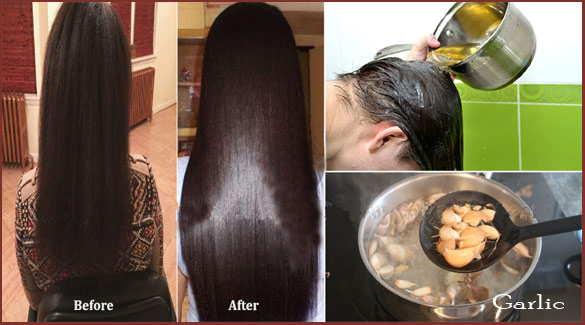
A few crushed cloves of garlic or about twice the amount of garlic powder, which is usually not as powerful as the fresh herb, should be boiled in olive or coconut oil and allowed to cool. The oily mixture can then be applied to the hair and washed off after a few minutes; this may needed to be repeated about three times a week for several weeks.
#08. Green Tea:
Green tea is a fundamental herbal medicine in the Chinese and Japanese traditions, and is very rich in antioxidants. These protect most tissues, including the hair follicles from the cumulative damage done by charged oxygen particles or free radicals. Warm green tea can be poured on the scalp and left in contact for an hour, then washed off with cool water.

#09. Henna:
Henna has long been used in many cultures as a natural hair conditioner and promotes the growth phase of hair follicles when they have slowed down or shut down due to various stresses. It is particularly associated with smooth and shiny hair, and is widely used to enhance hair color. A pack can be made by mixing a cup of henna powder with a half cup of plain yogurt and then applied to the hair from root to tip and left to dry before being washed off with a mild shampoo.
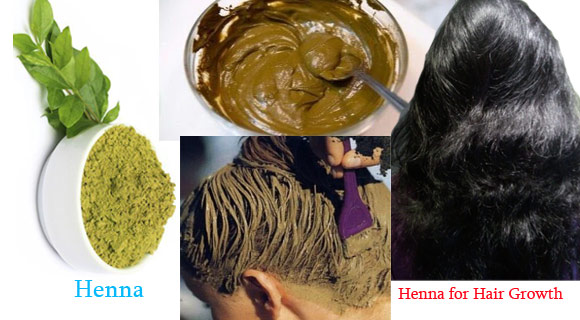
#10. Hibiscus flowers:
Hibiscus flowers have been called “the hair care flower” and widely used for dandruff, baldness and premature indications of aging. The herb may have antibiotic, antispasmodic and circulation-enhancing effects that stimulate the follicles and improve hair health. The flowers can be ground up and added to coconut or sesame oil to make a paste, then applied evenly to the scalp for several minutes before shampooing.
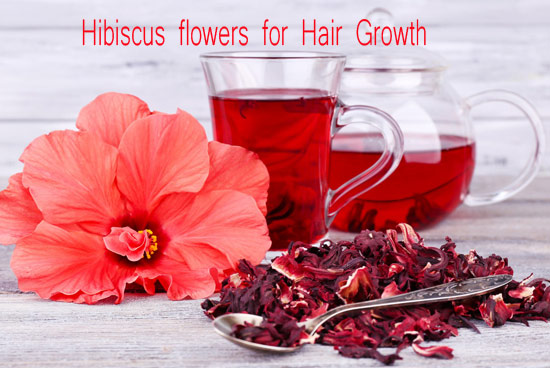
#11. Indian Gooseberry:
Indian gooseberry or amlais a staple of the Ayurvedic medical tradition. It is an efficient source of antioxidants and vitamin C, and can be eaten as a nutrient, made into a tea or applied to the hair. Two teaspoons of powder or juice are usually mixed with 2 teaspoons of lime juice, applied to the scalp and allowed to dry, then rinsed off with warm water.
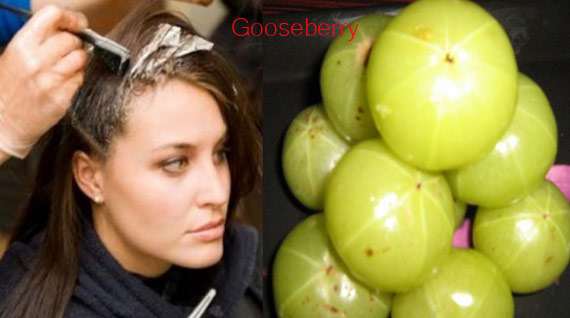
#12. Onion:
Onion like its relative garlic, is as prominent in Western herbal medicine as some of the herbs above and below. Its pungency is due largely to sulfur, and sulfur is essential for collagen metabolism and the production of some of the protein constituents of hair. Red or green onions (shallots) can be chopped fine and squeezed for juice, which is then applied to the scalp for 15 minutes followed by a shampoo.

#13. Peppercorns:
Peppercorns are prominent in Eastern medical traditions, and have been widely used to improve the texture and lustre of hair. The essential oils of black peppercorns are mild stimulants to the hair follicles, accentuate scalp blood flow and maintain scalp hydration. Two teaspoons of peppercorns can be combined with a half cup of lime juice and a paste made; the paste can be applied to the hair, particularly the roots, and then should be covered with a warm towel for deep penetration over the next half hour and then washed off.
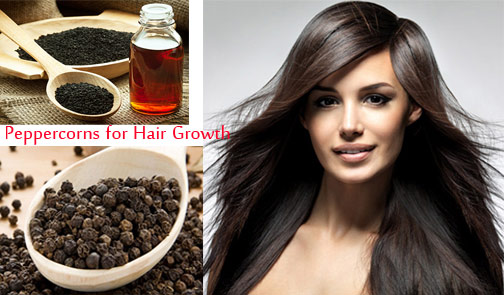
#14. Potato Juice:
The juice of the potato is not as well known as some of the other remedies, but is an excellent source of vitamins A and C and most members of the B-vitamin group. Potato juice has been used for various kinds of patchy hair loss (alopecia) and is effective in facial packs as well. The juice can be obtained from an extractor and applied to the scalp for 15 minutes, followed by a mild shampoo.
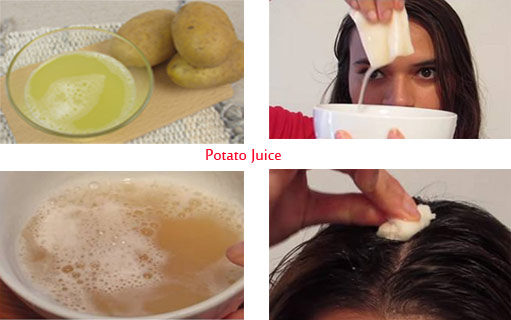
#15. Vitamin E Oil:
Last but certainly not least is vitamin E, used medicinally for a variety of conditions and available as tablets, capsules or oil. It is an antioxidant and therefore reduces free radical damage, but also increases circulation and may facilitate oxygen absorption and thereby stimulate the hair follicles. Vitamin E oil can be gently warmed and massaged into the scalp, then kept on overnight and washed off the next day, followed by a mild shampoo. This is often done as part of a regular essential oil massage program, and such massages promote hair growth and help to heal split ends. The effects of a massage can be enhanced by wrapping the head with a hot towel or shower cap, which stimulates the scalp and enhances circulation, thereby reducing dandruff, improving the appearance and lustre of the hair and promoting new hair growth.
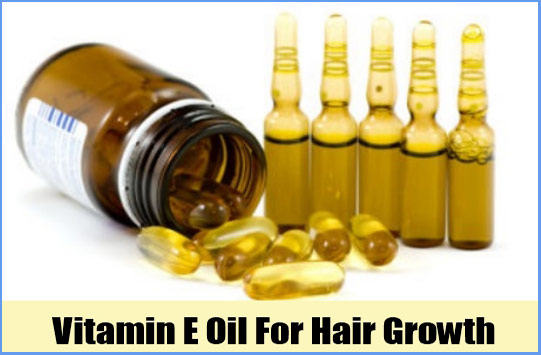
These and other safe and simple remedies you can make and use at home may be as effective as commercial hair products intended to facilitate hair growth, or some of the drugs that have been found to stimulate the growth of hair, even though these are in some cases safe enough to be sold over the counter. They will not be maximally effective, however, without changes in diet, lifestyle and often in mental attitude. You are what you eat, and hair is what you eat, too. Hair is mostly protein and hair that breaks or falls out may be a sign of insufficient protein or other imbalance in the diet.
Hair follicles stop dividing and hair stops growing or falls out in part because of nutritional insufficiency, inflammation, poor scalp circulation and the accumulation of free radicals and other toxins, and the same kind of healthy and balanced diet that is important to avoid cancer and heart disease and to minimize the effects of aging is also important to maintain youthful and healthy hair. It is crucial to stop smoking, because smoking constricts blood vessels in the scalp as in other places, and therefore interferes with the hair follicles. Alcohol intake can increase estrogen levels, and estrogens can be toxic to the hair follicles and cause hair loss; it is a good idea to reduce alcohol use if hair is thinning, and to give it up entirely if you really mean to regrow lost hair.
Finally, we have all heard about people tearing their hair out from stress; more accurately, the body’s response to stress includes shutting down the hair follicles, so the regrowth of hair will be helped by exercise, meditation, yoga, tai chi and other forms of stress management.
It boosts the regeneration of new hair and promotes the scalp circulation.
- Vitamin E oil:
For ages, Vitamin E has been a home remedy for hair growth.
Why?
Vitamin E oil is rich in antioxidants and thus it helps to fight away the free radicals. It helps in increasing oxygen in the body and so increases the blood circulation in the scalp.
How To Use:
- Massage vitamin E oil onto the scalp
- Leave it overnight.
- Wash off with a mild shampoo the next day for soft and smooth hair.
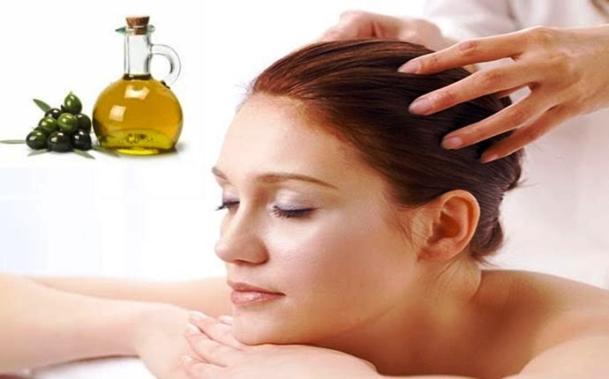
Regular massage with the essential oils promotes hair growth, reduces hair fall and split ends. This makes your hair softer and smoother. After massaging your hair with any essential oil, wrap your head with a hot towel or a shower cap. This allows the pores of the scalp to open up and helps the oils to penetrate into the scalp better. It also stimulates the scalp and improves the blood circulation which boosts hair growth. Regular hot oil treatments also reduce dandruff and give a shine to your hair.
Here is a post on how Vitamic E helps hair growth.
The Summary:
Vitamin E promotes hair growth as it is rich in antioxidants and helps increase the blood circulation in the scalp.
Last Updated on April 19, 2022 by Marie Johnson


